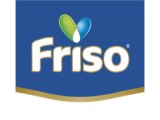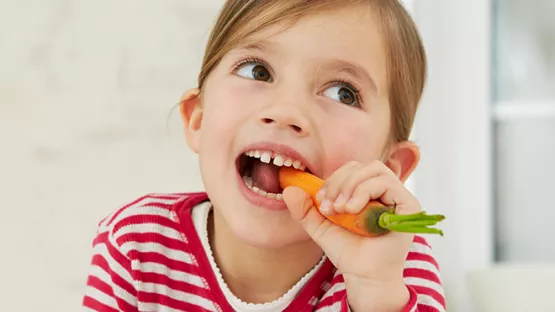
Key Nutrition: Getting your little one started with the right food
It’s remarkable how much your little one will develop in the early days and months of life. To fuel his or her growth, you can give their little bodies a variety of nutrition to aid their development, naturally. Choosing the right food will ensure that your little one receives both essential macro and micro nutrients. To help you, we’ve compiled a useful list of important foods your little one can benefit from.
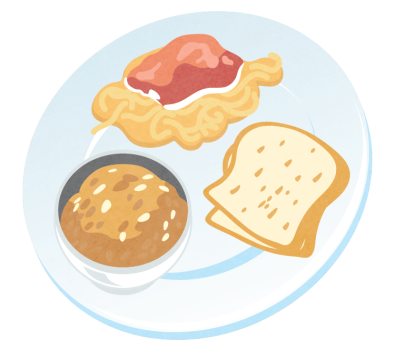
1. Wholemeal bread, pastas and brown rice
Containing carbohydrates, they give your child energy for his or her endless adventures1. Cooked pasta, with or without tomato sauce, is a hit with most kids.
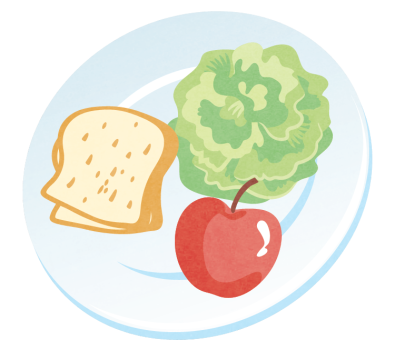
2. Fruits, vegetables and whole grains
Fruits and veggies are rich in fibre, which have the important role of moving bulk through your little one’s digestive tract2. Introduce more fibre into your little one’s diet by pureeing fruit and serving it as a sweet treat.
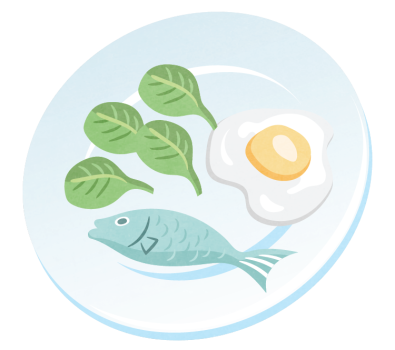
3. Fish, poultry and leafy vegetables
Fish, poultry and veggies are rich in iron, an important component in our blood that helps to transport oxygen throughout our bodies9. Cut leafy vegetables into tiny pieces and mix them with a carbohydrate like sweet potato to make it more appealing.
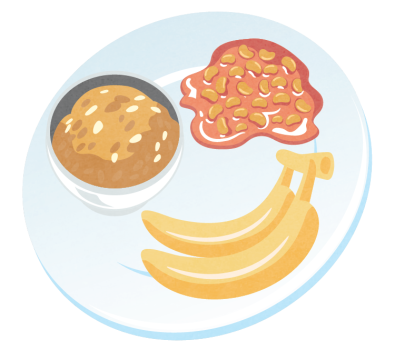
4. Oatmeal, bananas and baked beans
Serve these foods to provide your little one with magnesium. This nutrient helps to maintain normal nerve and muscle function4. Little ones love mashed banana, which is also quick and easy to prepare.
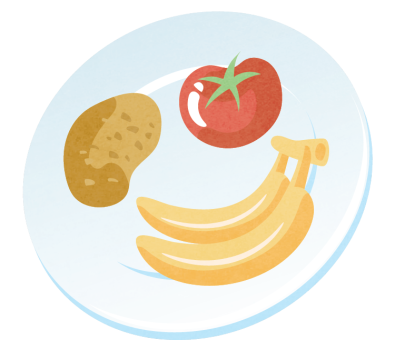
5. Potatoes, bananas and tomatoes
These yummy foods contain potassium, which controls the body’s water balance while supporting the nervous system and muscle functions5. Puree some prunes and serve it on its own, with oatmeal or applesauce.
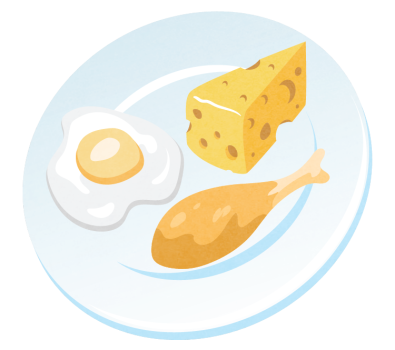
6. Lean meat, cheese, yoghurt and eggs
Protein-rich foods will help your little one build bones and muscle mass10 while keeping your little one’s child’s development on track. Give your child a sugar-free yoghurt that contains live cultures.
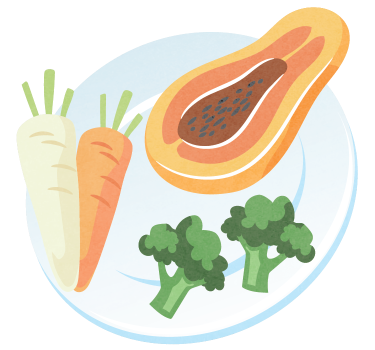
8. Carrots, broccoli and papayas
All these foods contain vitamin A, which promotes the growth of healthy cells and tissues in the body6, including those in our hair, skin and nails. Cut broccoli into little ‘trees’ and steam till soft before offering them to your baby.
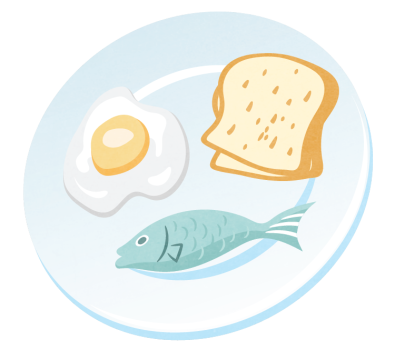
9. Wholemeal bread, fish and eggs
Abundant with vitamin B, these foods can help form red blood cells that transport oxygen to every part of your baby’s body and maintain the central nervous system in our bodies7. If your little one is six months or older, you can puree a boiled or scrambled egg and serve.
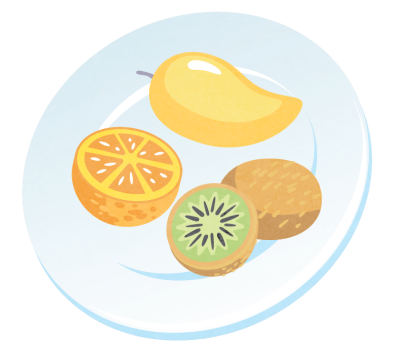
10. Oranges, mangoes and kiwis
This trio contains vitamin C, which helps produce collagen and maintain good bones, blood vessels, gums, skin and teeth7. Serving kiwi fruit is easy — simply slice in half and serve your baby by the spoonful.
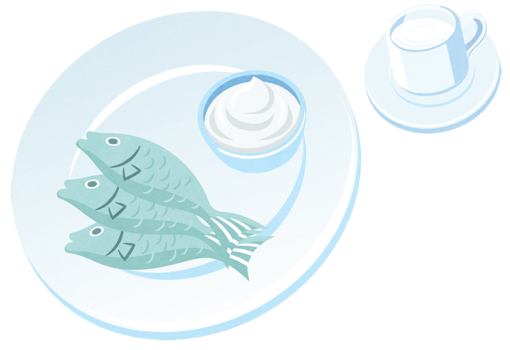
11. Yoghurt, fish and fortified milk
They are naturally rich in vitamin D10, which helps the body absorb the amount of calcium it needs. Add pureed fruit to unsweetened yoghurt to make it more palatable for your baby.
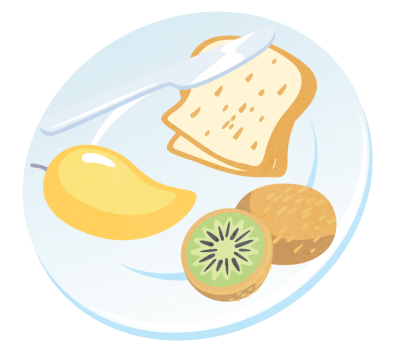
12. Kiwis, Mangoes and Peanut Butter
Kiwis, mangoes and peanut butter are all great sources of vitamin E, which helps protect body’s cells and tissues from damage7. Freeze some pureed mango and treat your little one to a delicious sorbet.
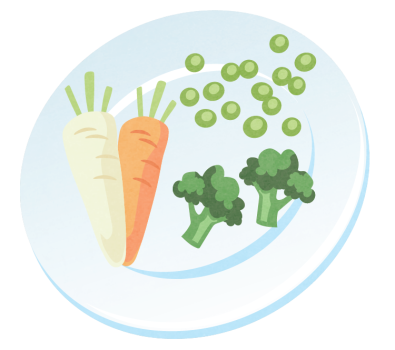
13. Green Peas, Carrots and Broccoli
These foods naturally contain Vitamin K, which It helps with blood clotting and maintaining healthy bones.7 Mix all three, puree them and warm up on the stove to make a thick, nutritious soup for your child.
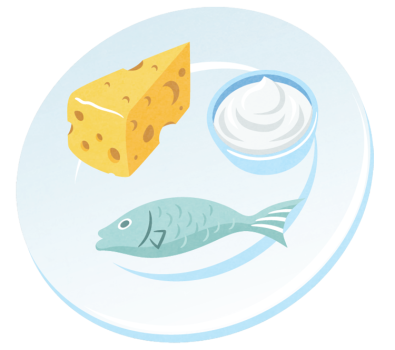
14. Milk, cheese and fish
Milk, cheese and brown rice all contain zinc, which helps build strong bones and joints, and maintains a healthy appetite8. You’ll also find zinc in lean meat and fish. When introducing cheese to your little one, you can puree cottage cheese and mix it with fruit.
As your little one grows, it’s a great opportunity to introduce new types of yummy natural foods for the first time. So have fun exploring this exciting world of flavours and textures with your baby by trying a wide variety of food types, while at the same time ensuring that your bundle of joy receives nutrients necessary for healthy development.
References:
- Why are Carbohydrates called Brain Food?
- The Top Ten Healthiest Foods for Kids
- Minerals
- Ten foods high in magnesium
- Potassium in your child’s diet
- Vitamin A in your child’s diet
- Vitamins
- Benefits of Zinc for Children
- The A-Z of essential vitamins and minerals for kids
- 6 Healthy Food Sources Of Proteins For Kids
